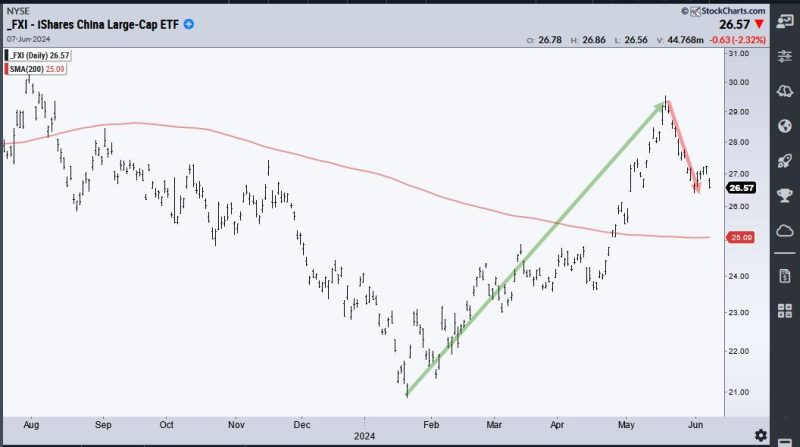Alibaba Returns to the Scene of the Crime
The recent resurgence of Alibaba has left many investors and analysts in a state of anticipation and curiosity. After facing a significant setback due to regulatory challenges in China, Alibaba seems to be reclaiming its ground as a dominant player in the global e-commerce market.
The e-commerce giant’s return to the scene of the crime, so to speak, is not just about overcoming the past turmoil but also about redefining its strategies and re-establishing trust among stakeholders. Alibaba’s journey back to the top is a compelling story of resilience, adaptability, and strategic decision-making.
1. Regulatory Hurdles and Overcoming Adversity
Alibaba’s encounter with regulatory challenges in China was a turning point in the company’s trajectory. The crackdown on Ant Group’s initial public offering (IPO) and the imposition of hefty fines on Alibaba for monopolistic practices sent shockwaves through the tech industry and financial markets.
Despite the setbacks, Alibaba managed to navigate the regulatory minefield with strategic finesse. The company’s willingness to cooperate with regulators, address antitrust concerns, and align its business practices with government policies showcased a pragmatic approach to crisis management.
2. Tactical Shifts and Adaptation
To regain lost ground and fortify its competitive position, Alibaba underwent a series of tactical shifts and adaptations. The company diversified its revenue streams beyond e-commerce into areas such as cloud computing, digital entertainment, and fintech.
Alibaba’s foray into new business verticals not only generated additional revenue streams but also reduced the company’s reliance on its core e-commerce business. By broadening its service offerings and exploring new growth avenues, Alibaba demonstrated a forward-looking approach to business sustainability and expansion.
3. Rebuilding Trust and Raising the Bar
Central to Alibaba’s resurgence is the concerted effort to rebuild trust among investors, consumers, and regulatory authorities. By enhancing transparency, accountability, and corporate governance practices, the company aimed to restore confidence in its operations and leadership.
Moreover, Alibaba raised the bar for ethical standards and corporate responsibility by promoting sustainability initiatives, supporting small businesses, and advocating for social impact. These efforts not only improved Alibaba’s reputation but also positioned the company as a responsible corporate citizen committed to long-term success.
4. Global Expansion and Future Prospects
As Alibaba regains its footing in the Chinese market, the company is eyeing global expansion to drive growth and diversify its revenue sources. The internationalization of Alibaba’s business operations and partnerships with global brands signal its ambition to become a leading player in the global e-commerce landscape.
Looking ahead, Alibaba’s future prospects appear promising, buoyed by the company’s renewed focus on innovation, customer-centricity, and digital transformation. By staying agile, adaptive, and visionary, Alibaba is poised to write a new chapter in its success story and continue shaping the future of e-commerce on a global scale.
In conclusion, Alibaba’s return to the scene of the crime underscores the company’s ability to overcome adversity, adapt to changing circumstances, and redefine its strategic trajectory. Through regulatory compliance, tactical shifts, trust-building initiatives, and global expansion, Alibaba is not just reclaiming its ground but setting the stage for sustained growth and leadership in the digital economy.




























